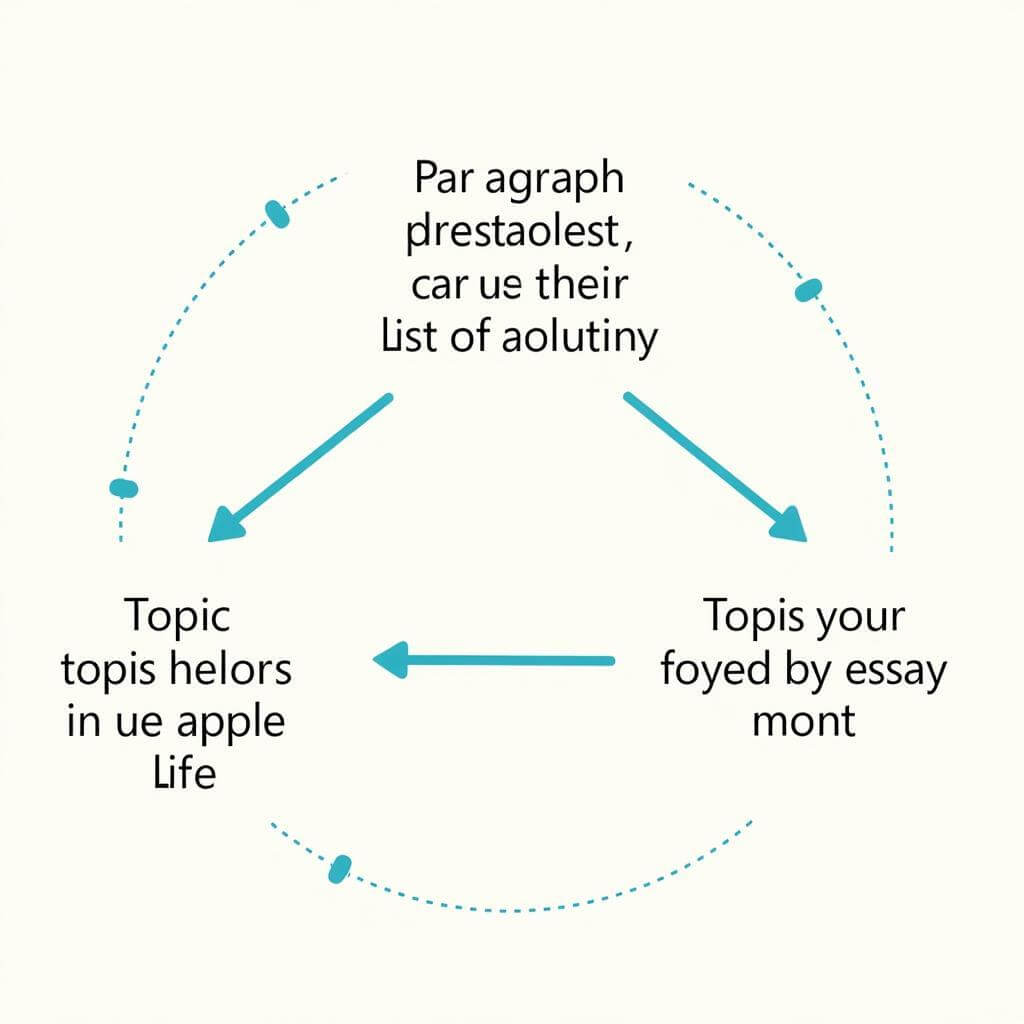Coherence is a crucial element in IELTS Writing that can significantly impact your overall score. It refers to the logical flow of ideas and the smooth connection between sentences and paragraphs. In this guide, we’ll explore effective strategies to improve coherence in your IELTS essays, ensuring your writing is clear, organized, and impactful.
Understanding Coherence in IELTS Writing
Coherence is more than just using Common linking words for IELTS Writing?. It’s about creating a seamless progression of ideas that allows the reader to follow your argument effortlessly. IELTS examiners look for coherence as a key indicator of your ability to communicate effectively in English.
Why Coherence Matters
- Improves readability
- Demonstrates logical thinking
- Enhances overall essay structure
- Boosts your Task Achievement and Coherence and Cohesion scores
Key Strategies to Enhance Coherence
1. Plan Your Essay Structure
Before you start writing, take a few minutes to outline your essay. This helps you organize your thoughts and ensures a logical flow of ideas.
“A well-structured essay is like a roadmap for your reader, guiding them through your arguments with ease,” says Dr. Emma Thompson, IELTS Writing Expert.
2. Use Clear Topic Sentences
Start each paragraph with a clear topic sentence that introduces the main idea. This helps the reader understand the focus of each paragraph and how it relates to your overall argument.
3. Maintain Paragraph Unity
Ensure that each paragraph discusses only one main idea. This helps maintain focus and prevents your writing from becoming disjointed.

4. Use Transition Words and Phrases Effectively
While not the only factor in coherence, transition words and phrases play a crucial role in connecting ideas. Use them wisely to show relationships between sentences and paragraphs.
Examples of effective transitions:
- To show addition: Furthermore, Moreover, Additionally
- To contrast: However, On the other hand, In contrast
- To provide examples: For instance, To illustrate, Such as
- To conclude: In conclusion, To sum up, Overall
5. Create Logical Progression
Ensure your ideas flow logically from one to the next. This can be achieved through:
- Chronological order
- Cause and effect
- General to specific (or vice versa)
- Order of importance
6. Use Pronouns and Referencing
Utilize pronouns and referencing to avoid repetition and create smoother connections between sentences. However, be careful to use them clearly to avoid confusion.
7. Maintain Consistent Tense and Voice
Consistency in tense and voice throughout your essay enhances coherence. Sudden shifts can disrupt the flow and confuse the reader.
Advanced Techniques for Enhancing Coherence
1. Thematic Threading
Weave a common theme or idea throughout your essay. This creates a sense of unity and helps tie different parts of your writing together.
2. Parallel Structures
Use similar grammatical structures when presenting related ideas. This creates a rhythm in your writing and makes it easier for the reader to follow.
Example:
“To improve your IELTS score, you should practice regularly, study efficiently, and think critically.”
3. Circular Structure
Consider linking your conclusion back to your introduction. This creates a sense of completeness and reinforces your main argument.
Common Pitfalls to Avoid
- Overusing transition words
- Introducing new ideas in the conclusion
- Writing overly long or complex sentences
- Neglecting to proofread for coherence
Practicing Coherence in IELTS Writing
Improving coherence takes practice. Here are some exercises to help you enhance this skill:
- Paragraph ordering: Take a scrambled essay and try to put the paragraphs in the correct order.
- Sentence linking: Practice connecting sentences using various transition methods.
- Outlining: Create detailed outlines for practice essays before writing them.
- Peer review: Exchange essays with a study partner and provide feedback on coherence.
“Regular practice is key to mastering coherence in IELTS Writing. Focus on creating a clear, logical flow in every essay you write,” advises Sarah Chen, IELTS Preparation Coach.
For more guidance on improving your essay structure, check out our article on strategies for writing task 2 body paragraphs.
Conclusion
Enhancing coherence in IELTS Writing is a skill that can significantly improve your score and make your essays more effective. By implementing these strategies and practicing regularly, you can develop the ability to write clear, well-organized, and logically connected essays. Remember, coherence is not just about using the right words, but about creating a seamless flow of ideas that guides your reader through your argument.
To further improve your IELTS Writing skills, consider exploring our guide on how to score band 7 in IELTS writing. With consistent practice and attention to coherence, you’ll be well on your way to achieving your desired IELTS score.
FAQs
-
How important is coherence in IELTS Writing?
Coherence is crucial in IELTS Writing as it directly impacts your Coherence and Cohesion score, which is 25% of your total Writing score. -
Can I improve coherence without using lots of linking words?
Yes, coherence is more about logical flow and clear organization than just using linking words. Focus on structuring your ideas clearly and connecting them logically. -
How can I check if my essay is coherent?
Read your essay aloud, focusing on how ideas connect. Ask someone else to read it and provide feedback. You can also try how to practice writing task 2 at home for more self-assessment techniques. -
Does paragraph length affect coherence?
While there’s no strict rule, balanced paragraph lengths can contribute to overall coherence. Aim for paragraphs that fully develop one idea without becoming overly long. -
How can I improve coherence if English isn’t my first language?
Regular reading in English, practicing writing, and seeking feedback are key. Also, focus on writing clearly for task 2 essays to improve overall coherence.